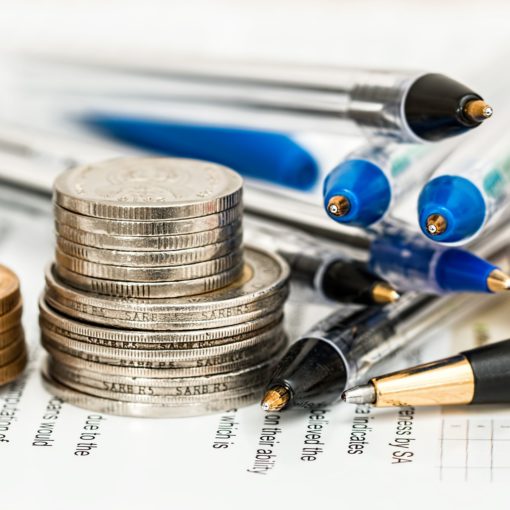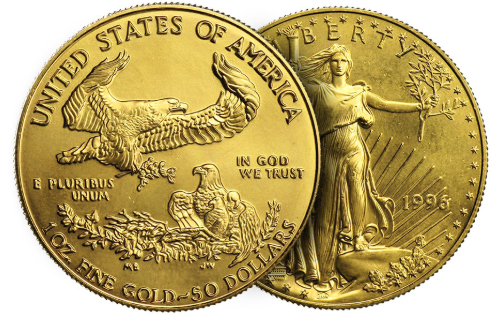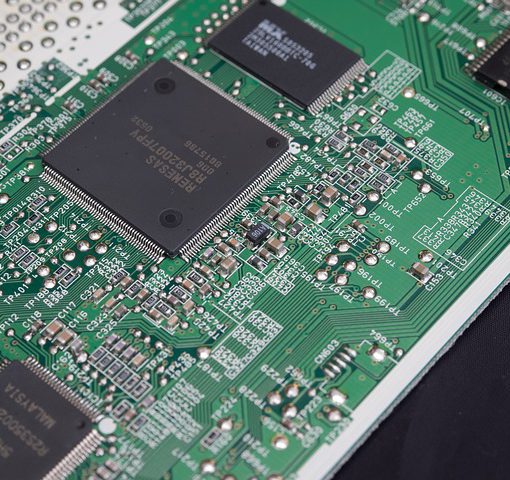21 Tips for Buying Gold – How to Buy Gold and Silver for Investment: Complete Checklist
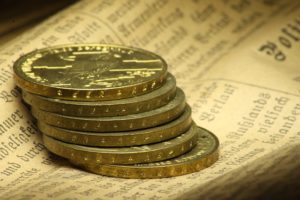 Are you looking for a long-term investment or just something safe? Something that you can sell quickly in the event of an economic crisis? Investing in gold is a proven way to protect wealth and diversify a portfolio of stocks and bonds. But, what type of gold should you invest in? What do you do when you’re ready to buy gold? How can you avoid getting scammed? Bullion was once an investment that was limited to the wealthiest individuals. Now it’s something anyone can hold. There is around the clock availability with secure on-line markets, it has never been easier to buy or sell. Follow these tips, and soon you’ll be investing like a professional. Below are 21 tips for buying gold and silver that will answer the most important questions.
Are you looking for a long-term investment or just something safe? Something that you can sell quickly in the event of an economic crisis? Investing in gold is a proven way to protect wealth and diversify a portfolio of stocks and bonds. But, what type of gold should you invest in? What do you do when you’re ready to buy gold? How can you avoid getting scammed? Bullion was once an investment that was limited to the wealthiest individuals. Now it’s something anyone can hold. There is around the clock availability with secure on-line markets, it has never been easier to buy or sell. Follow these tips, and soon you’ll be investing like a professional. Below are 21 tips for buying gold and silver that will answer the most important questions.
Tips for Buying Gold and Silver – Learn and Compare
1 Know the current gold and silver prices
The prices of gold, silver and platinum fluctuate daily. Check the spot price each day before making a transaction. The day you buy, you can check the spot price of gold, silver and other precious metals online. Up to the minute prices are available on many websites, such as www.goldprice.org.
2 Shop Around First
When you invest in gold, remember that it is a commodity and it is up to you to make sure you do not overpay. The day you buy, check the spot price of gold. When you buy, do not pay more than 5% to 8% over the spot price. That’s the typical markup premium. The United States Mint does not directly sell American Eagle gold coins to individual investors. The Canadian Mint does not sell Canadian Maple Leaf coins directly to investors either.
Both mints sell through established dealers. There is a dealer locator tool on the US Mint’s website. Comparing prices between distributors is pretty easy. Any amount over the spot price is the premium and can be easily calculated by subtracting the spot price from the listed price. You should compare the prices of the distributors online. This is the most important thing you can do as an investor. Paying more than you need is just nonsense.
3 Compare Dealers
 You can usually find the best price for gold and silver coins by checking the internet. The dealer websites are a good place to start, as are the gold exchanges, which can be easily found online. The United States Mint is an excellent resource to verify the credibility of the gold distributors you are considering. First, go to the website of the US Mint. Then check its authorized gold buyers & distributor list. American Eagle Bullion coins are one of the most popular coins for investing in gold. They make their way into the market when they are sold to the “authorized buyers”.
You can usually find the best price for gold and silver coins by checking the internet. The dealer websites are a good place to start, as are the gold exchanges, which can be easily found online. The United States Mint is an excellent resource to verify the credibility of the gold distributors you are considering. First, go to the website of the US Mint. Then check its authorized gold buyers & distributor list. American Eagle Bullion coins are one of the most popular coins for investing in gold. They make their way into the market when they are sold to the “authorized buyers”.
If you are new to buying gold, the mint’s authorized buyers are an excellent place to start. Check their prices, delivery, terms and conditions. The Mint marks up the price of coins to cover the value of gold and actual mintage, as well as shipping and other costs. The distributors say that initial markup is around 3%. Then, the authorized buyers add their own profit margins. All of these authorized buyers sell to other dealers. However, some sell directly to the public. These are your best bet for getting the best price as well as having a direct endorsement from the US Mint. The Canadian Mint has a similar practice if you are interested in purchasing Canadian Maple Leaf coins.
4 Only Buy from Reputable Firms
Gold traders are usually reliable and solid sources to buy and sell gold. But, as always, the buyer must be careful. Be especially careful if you buy gold and decide to sell it again to the same dealer. There are thousands of dealers in the United States. But there is no federal regulation and very little state regulation that governs bullion sales. The Better Business Bureau has a list of national concessionaires and dealerships per state. The Bureau compares those distributors and compiles a list for complaints. They also monitor online to see how dealers promote their goods. But, the Better Business Bureau does not vouch for or recommend one distributor over another. However, remember that the US Mint has a group of authorized buyers. These primary distributors are obviously trusted by US Mint. So, you may want to just buy directly from one of them.
5 Verify Buyback Policies and Premiums
Pay careful attention to dealer repurchase policies. This is best done at the same time you are comparing distributors. Find out what a distributor charges if you buy from him. Then, what he will give you if you sell it back. Each distributor is different. Some gold merchants charge a premium for a gold repurchase and others do not. It is worth checking and finding out the policy first. Avoid surprises and check the policy before you purchase. If you do not like the payment premium, you can always buy from another distributor. If you have already made a purchase, you can always sell your gold coins to another dealer who does not have a buyback premium.
Tips for Buying Gold and Silver – What to Buy
6 Only Buy Physical Gold and Silver
The basic function of gold and silver throughout history was as a means of monetary exchange. Gold and silver have been used as money for 5000 years. It was only in 1971 that US President Nixon left the gold standard and governments began making the transition to fiat paper currency. The fiat system uses paper money that is not backed by gold or silver. Prior to that, all paper money was backed by gold or silver. Gold and silver are still a premier hedge for inflation and economic turmoil. When you buy gold, you are also buying insurance against the collapse of the monetary system. Therefore, make sure you have it physically in your possession.
7 Don’t Buy it on Paper
The term “gold paper” means that you have a piece of paper that acts as a substitute for physical gold. With paper gold, you do not have gold. You own a promise to receive gold – or its dollar value. Basically, you are a creditor of the corporation that issues the gold certificate on paper. Paper gold is subject to counter-party risks. This means the other party could default on their contractual obligation. Owning physical gold has no counter-party risk and should be totally under your control. Examples of gold on paper are gold certificates issued by banks and mints, common accounts, futures accounts and the publicly traded fund of the New York Stock Exchange. With these products, you own a sheet of paper instead of physical gold.
Often, these products do not guarantee that you actually own any real gold. If you check the details in the Terms and Conditions, you often find that they do not have any real gold on hand. You are not allowed to request physical delivery and often have cash settlement clauses. This means that the bank can pay in cash instead of physical metals in a currency crisis or war. These paper products only give you exposure to the price of gold. You can only profit by selling them to someone else who wants to own paper gold. However, if no one wants to buy, you are left holding worthless paper which you likely will not be able to exchange for metal. This is exactly what you do not want.
You want to put it aside as your insurance or to save money over a long period of time. Therefore, make sure it is physical and that it is yours. Also, be sure to receive the exact details of the items you own, including bar numbers, stamps, identifying marks and serial numbers.
8 Only Consider the Most Liquid: Like US or Royal Canadian Mint 1 oz coins
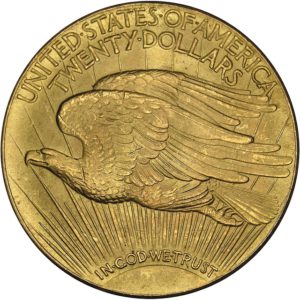 Ideally, you want to get as much gold as possible for your cash. You want to make sure that it is considered legal tender, you want it to be immediately recognizable by non-experts and you want to have low minting fees. The best way to do all this is to invest in legal tender, 1 oz coins issued by a government mint – like the US Mint or the Royal Canadian Mint. Gold ingots and bars have low production fees, but require assay verification if you ever want to sell. In a financial crisis, you do not want to run around trying to sell a kilo bar of gold. What you want are 1 oz coins produced by the US or Canadian Mint!
Ideally, you want to get as much gold as possible for your cash. You want to make sure that it is considered legal tender, you want it to be immediately recognizable by non-experts and you want to have low minting fees. The best way to do all this is to invest in legal tender, 1 oz coins issued by a government mint – like the US Mint or the Royal Canadian Mint. Gold ingots and bars have low production fees, but require assay verification if you ever want to sell. In a financial crisis, you do not want to run around trying to sell a kilo bar of gold. What you want are 1 oz coins produced by the US or Canadian Mint!
For example, suppose you buy a maple leaf, which is offered by the Royal Canadian mint. When you buy, the price of the physical ounce of gold should be as close as possible to the spot price of gold. That is always the fundamental starting point from which to calculate the value of an ounce of gold. In addition to that, you will have to pay a manufacturing fee and any intermediary costs that the distributor must incur to sell the coin. Whether you buy a gold coin like the Maple Leaf or the American Gold Eagle, buy them from a dealer authorized by the Mint. And make sure you do not pay more than 5-6% above the spot price. That is the general price range. As soon as you are satisfied with your stock of smaller domination of 1 oz coins, then you can consider switching to larger formats.
9 Avoid Rare Coins
What about the numismatic coins? Anyone who wants to buy rare coins must fully understand the numismatic business before making important decisions. You need to know the coins, and numismatic can have a huge price. The market could add two, three or even four times the price of a regular ounce of gold for an old or collector coin. If you do not understand what you are buying, then don’t do it. You need to have the knowledge, and if you do not have the knowledge, stay away from these things.
Rare coins require more diligence and experience when buying them. Two coins may look the same but have completely different grades. This difference can add thousands of dollars to the purchase price. You must hire a professional grading service and obtain a certificate of authenticity when you buy rare coins, a nuisance for most investors. These professional grading services judge the physical condition of a coin and assign it a grade. Buying rare coins is more like buying artwork rather than gold or silver. If you’re not an avid coin collector, avoid rare coins. Rare coins require more diligence and experience compared to investment grade bullion.
10 Avoid Historical or Commemorative Coins
Commemorative coins celebrate and honor American people, places, events, and institutions. Although these coins are usually legal tender, they are not minted for general circulation. Each commemorative coin is produced by the U.S. Mint in limited quantity and is only available for a limited time. The U.S. Mint has been criticized for commemorative issues of dubious recognition and seemingly endless mint runs.
Some gold investors can get distracted and caught up in commemorative coins with questionable historical significance. Opportunistic coin dealers are often too happy to play along. They offer gold coins as bullion, and then try to sell to customers higher priced offerings with historical or commemorative value. In fact, these currencies generally have little or no additional value above their melt value. This is the value of the coin if it was melted down and sold for its precious metal content.
11 Avoid Proof Coins
Proof coins are special editions for collectors and are often mounted in a special case. The dies used to make them are often finely polished and produce particularly beautiful coins with mirror finishes. Proof editions are usually more valued than normal coins by collectors. But, the premium you pay for proof coins may be inflated and may disappear, depending on the market. Therefore, for investment purposes, stick with regular bullion grade 1 oz coins like the Canadian Maple Leaf or the American Eagle coins. Do not pay extra for proof coins.
12 Avoid Fractional Coins
American Gold Eagle coins are issued in four denominations: 1 ounce, half ounce, one quarter ounce and one tenth ounce. Be aware that fractional coins have higher premiums above spot prices than the full 1 ounce versions. For the best value, it is better to stick to 1-oz coins.
Just remember – the smaller the unit, the higher the premiums dealers charge and customers are willing to pay. Survivalists who believe in an eventual collapse of society tend own them. They believe in the event of an economic collapse, paper currency will have no value. Therefore, they anticipate a need for small change (fractional ounces of gold or silver) to buy goods and services after the collapse. If you agree with that school of thought, purchase 1 oz silver coins for that purpose. Think of 1 oz silver coins as twenty dollar bills and 1 oz gold coins as one thousand dollar bills.
Tips for Buying Gold and Silver – Delivery and Storage
13 Take Possession and Direct Ownership
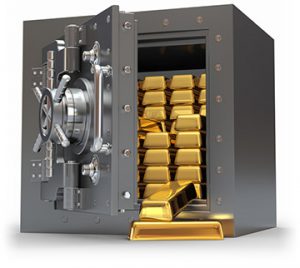 If you buy gold and silver bullion, keep it in a safety deposit box or in a safe in your house. Do not leave it with a coin dealer. Physical possession is the best way to avoid scams. Remember, the whole reason you are investing in precious metals is for disaster safety. You lose a part of the security if you do not have it in your possession. Needless to say, you want to keep it a secret.
If you buy gold and silver bullion, keep it in a safety deposit box or in a safe in your house. Do not leave it with a coin dealer. Physical possession is the best way to avoid scams. Remember, the whole reason you are investing in precious metals is for disaster safety. You lose a part of the security if you do not have it in your possession. Needless to say, you want to keep it a secret.
There is a proverb that says: “If you can’t hold a possession in your own hand it is not really yours”. This applies to gold and silver. Especially if you are a small to average investor without much money to invest in gold. To start out, you should buy single one ounce gold coins and store them where you live. This way, you can quickly access your gold in a severe crisis scenario. If you have more money and want to allocate greater portions of your wealth to physical gold, then it might make sense to store some of your gold further away – in jurisdictions that have solid private property rights.
14 Store Some Coins at Home or Nearby
You should always have access to some gold. Whether you can put it in a safe in your house or bury it outside, just make sure you can get to it it. The key is to have direct access to your gold if something happens. You don’t have to store all of your gold at home. Just what you want to have available in a crisis situation. Gold is portable, and keeping it at home is possible and logical. A personal safe is all that’s required to provide peace of mind. Apart from maybe your insurance agent, nobody should know that you have gold in your house. Never let your home become a target of theft by showing off your Gold Eagles to anyone and everyone who walks through the front door. Needless to say, you want to keep it a secret.
15 Store the Rest in a Safe Jurisdiction
If your gold holdings are significant, you should store the excess in a safe jurisdiction where the power of politics is limited. Switzerland is historically one of the safest jurisdictions and it has a decentralized political system. The government functions from the bottom up. Therefore, the Swiss people have the last say and they would never allow for confiscation, they’re not that stupid. Liechtenstein is similar to Switzerland and is a good choice to consider if you are thinking about safe storage in Europe.
Over the past decade, there has been a trend to move assets to Asia, especially to Singapore and Hong Kong. Reasons include concern about the stability of the financial system in Europe that may eventually affect Switzerland. Also, there was the unwanted attention Switzerland drew in terms of the integrity of their banking system. On the other hand, there has been growth in precious metals storage infrastructure in Asia and flourishing economies. Investors feel that it is safe to store their bullion there. For example, Singapore built the Singapore Free Trade Zone in 2009, waived the Goods and Services Tax on investment-grade bullion in 2012, and established the Singapore Bullion Market Association. The government in Singapore seems determined to turn itself into the Asian Switzerland and provide an attractive alternative as a safe and secure financial jurisdiction.
The best jurisdictions you can find these days are still Switzerland, Liechtenstein, and Singapore. These locations are exceptional when it comes to physical precious metals stored outside the traditional banking system. Just make sure that when you choose a gold storage company, you are the registered owner of the gold. It is important that the gold belongs directly to you and no one else. The company you are dealing with should not be allowed to pledge, hedge, lease or aggregate it with other stocks. That is vital.
16 Store Outside the Banking Industry
Physical gold is one of the few real answers to a collapse of the current economic system. The world’s banking system is based on credit, paper and digital wealth. A potential crisis is the reason why many people are buying gold to protect themselves. If you decide to buy physical gold, it is logical to store it outside of a fragile banking system. Property rights in the banking system are empty. In the past, banks and governments have confiscated physical gold and cash. In the event of a severe financial panic, there is always the possibility all assets will be confiscated or frozen.
The current banking system operates on a principle known as fractional reserves. This means only a fraction of the cash that has been deposited is kept on hand for withdrawal. This is why banks closed during the great depression. There was not enough cash on hand to pay back to the bank’s customers so the banks closed. If you had assets in a bank safety deposit box, too bad. With the banks being closed, there was no access. The conclusion: do not put your gold in banks. You do not want to take that risk.
Tips for Buying Gold and Silver – General and Miscellaneous
17 Don’t Buy Gold or Silver Using Credit or Leverage
Don’t take out credit or speculate to buy gold. You never know what the market is going to do and you may have to pay back your credit before the price of gold rises. Borrowing money (also known as buying at margin) to make a greater investment in gold is a risky game. Let’s say, for example, that you invest $ 4,000 and then leverage your investment five to one. Now, you control gold worth $20,000 in an account established by a distributor or brokerage firm.
Remember, the price of gold is volatile. If the price goes down enough (below the minimum margin requirement), you will have to top up more money to maintain your account. Or you will have to sell part or all of your investment. Besides that, you are paying interest on the borrowed money. The whole purpose of gold is to hedge against economic hard times and preserve wealth. Therefore, don’t use margin or credit to buy gold.
18 Don’t Buy Based on Fear
In 1933 President Roosevelt issued an order to collect gold from US citizens because the banking panic of that year was depleting the Federal Reserve’s supply of gold. At that time, the US Treasury was on a monetary standard based on gold. The gold standard was a system under which the dollar was equal in value and redeemable for a specific amount of gold. Roosevelt’s Executive Order exempted rare and unusual coins from having to be turned in. Many Americans just kept their gold and no gold police went door to door to enforce the presidential order.
However, some gold traders use these facts to scare investors into buying gold and overpriced coins. The US Treasury is no longer on a gold standard and have not been since 1971. Any limit to the ownership of gold in the US was repealed in 1974. Despite the paranoia-laden arguments of some vendors there is no real threat of gold confiscation.
The point is, buy gold or silver because you believe in the investment. Buy because you understand it to be a hedge against inflation, fiat currencies and economic chaos. Buy it because gold and silver have been used to preserve wealth for over 5000 years. However, don’t buy gold or silver based on fear tactics.
19 Don’t Buy from Telemarketers
The Federal Trade Commission reports an increase in boiler room telemarketers selling gold coins or bars. A boiler room is a room full of vendors who call prospects and use high-pressure sales tactics. These operators usually make inflated claims about the possible profits of gold. For example – “you can triple your money in 30 days.” These claims are often accompanied by warnings about the weakness of the economy and how gold is less risky than stocks. These operations do not offer you physical possession of the gold. They claim that they will hold it for you in a vault at no extra charge. Another red flag is if they offer to sell you gold below the market rate for an immediate profit. In many cases, these are direct scams and there is no gold. Only buy gold from reputable dealers. Never buy from someone you don’t know over the phone.
20 Obey the Laws
There is an IRS requirement to report of cash payments over $10,000 received in a trade or business. The general rule is that any cash transaction over $10,000 must be reported to the IRS using Form 8300. Cash transactions under that amount have no reporting requirements.
Whenever the possibility arises, the average gold investor should buy a few coins at a time. Most gold investors aren’t be able to buy a lot of coins anyway, so that can work to your advantage. If you buy a few coins at a time each year, you can buy them privately with no reporting requirements to the US Treasury. This is a definite positive. When you buy in small transactions under $10,000 dollars, you can buy anonymously. You don’t have to identify yourself or disclose any personal information – and it is fully legal. Buying small amounts at a time gives you even more security and privacy. So, the average buyer is at an advantage when buying limited amounts with each purchase.
If you want to invest in larger amounts of gold or silver, be aware of the reporting laws. If you are in a position to make larger purchases, make sure that you follow the law. There is no law limiting the amount of gold you can own, only the amount of cash you can spend before it must be reported. You can always chose to purchase small amounts for home storage. This requires no reporting and complete confidentiality. Larger amounts can be legally purchased and then stored in a safe jurisdiction. Always obey the law and play by the rules of the game. It is still possible to play by the rules of the game and keep large amounts of gold and silver safe. This is possible if you store your larger holdings in a jurisdiction like Switzerland or Liechtenstein or Singapore.
21 Only Invest Money You Don’t Need for Five Years
No one can tell you if or when the next financial crash might be. If you believe those people who say the system will collapse in the next six months, you will likely make bad financial decisions. Do not believe that doom and gloom is just around the corner and do not speculate. Invest only the money you do not really need – at least for the next five years. If you buy now, you may be at the beginning of the next bull market, but don’t speculate short term. It is very likely that the price of gold will be higher in five years than it is today. But, it is more difficult to know what will happen in shorter timelines.
If you want the best opportunity for a good return, you should be prepared to wait at least five years. If the system fails before then, you are protected. But do not gamble and use money you might need in three, six or even nine months. No one knows where the price will go in the short term. An ounce of gold is always an ounce of gold. The price fluctuates because of the value of the US Dollar, not the value of gold. No matter what, there is a very high probability that, after five years, you will be really happy with your investment. You will be able to sleep better at night as well, knowing you have a hedge against economic hard times.
Tips for Buying Gold and Silver – Bonus Tip
Use the LBMA System to Buy and Sell Larger Gold and Silver Bars and Ingots
Eventually, you may want to put a larger percentage of your wealth into gold and silver and buy larger denominations. Only procure bars and ingots that were refined by members of the London Bullion Market Association LBMA, or the London Platinum and Palladium Market LPPM. Confine your purchases to suppliers that only ship and store products with secure logistics companies that are members of these associations.
To enter the LBMA ecosystem, all metals must be tested, assayed and approved before being accepted into the system. This provides reassurance regarding the authenticity of the products, as well as the assurance that security standards are firmly in place. When it is time to liquidate your assets, the assets acquired through the LBMA will take less time to liquidate and the whole process will cost you less. Any elements that are removed from the LBMA / LPPM ecosystem must be tested or analyzed before being re-deposited into the system again.
Tips for Buying Gold and Silver – Final Thoughts…
While buying gold is generally a good investment strategy, you should consider some warning signs. Distributors that offer free storage or delays in delivery may not be legitimate. You may never end up seeing the gold you paid for. Store your gold in your own safe deposit box or home safe to protect yourself in the event of a financial panic.
There are certain places and people that should always be avoided when buying gold. These include Craigslist, online distributors that offer massive discounts, pawnshops, television commercials, cold calling people and any distributor without a physical location. Without a physical location, there is no way of verifying that the distributor actually exists. Do not give in to pressure from night telemarketers who insist you call them immediately to get a discount for a limited time on the price of gold. Take your time to find a reputable dealer. These tips for buying gold and silver are in no way everything to consider, but they offer a good starting point.
Investing in Precious Metals for Beginners
Investing in precious metals for beginners can be intimidating. Many investors – especially beginners just do not know where and how to start. All investors should be familiar with the concept of diversification. If you hold a large percentage of the stocks in your portfolio, it can be very beneficial to have other investments that are unlikely to be affected by stock market events. For more tips for buying gold and silver and other precious metals check out this guide:
Investing in Precious Metals for Beginners: Precious Metals List and Guide

